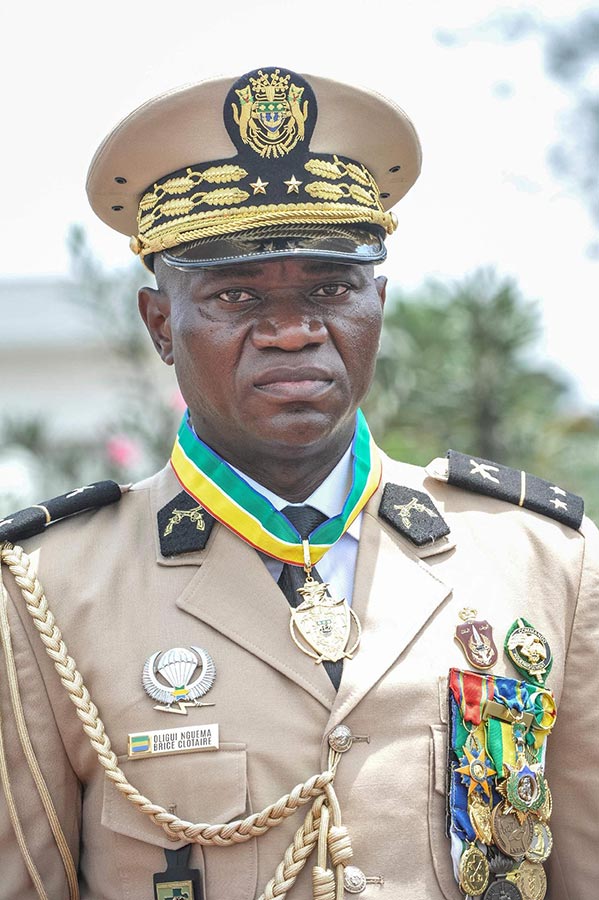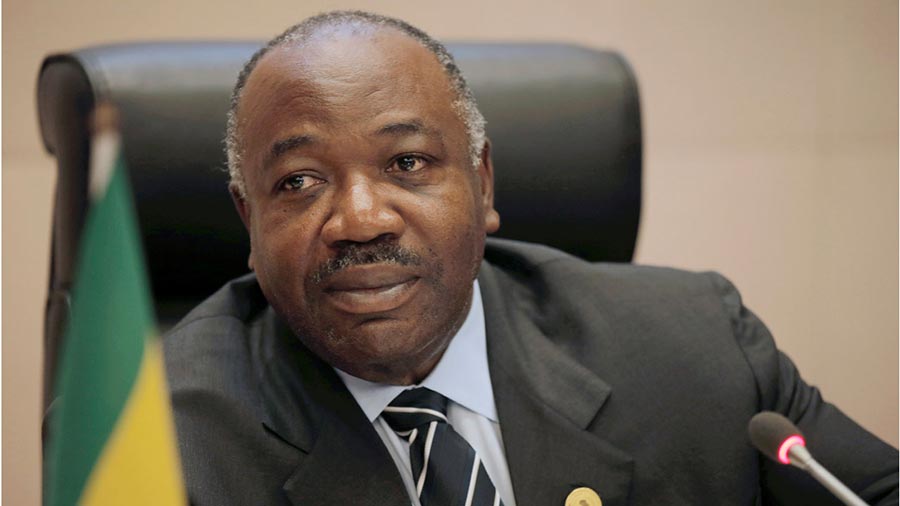The former president of Gabon, Ali Bongo Ondimba, knew well the threat of military coups in his part of the world. But he swore one wouldn’t happen to him. “While our continent has been shaken in recent weeks by violent crises, rest assured that I will never allow you and our country Gabon to be hostages to attempts at destabilization. Never,” Bongo declared on Aug. 17 as the central African nation marked 63 years of independence from France, almost all of that time with his family in power.
Just a few days later, on Aug. 30, Gabonese military officers booted Bongo out of office in a swift coup and seized power. They put him under house arrest, after the nation’s election body announced that he had won a third term with 64% of the vote, with his main challenger, Albert Ondo Ossa, getting 31%. Bongo has held power in a corner of Africa where heads of state find ways to stay in office for decades. Gabon’s neighbors are ruled by a trio of the continent’s longest-running leaders, including Teodoro Obiang in Equatorial Guinea, in office since 1979; Paul Biya in Cameroon, in office since 1982; and Denis Sassou Nguesso in the Republic of Congo, in office from 1979-92 and again since 1997.
“I don’t know what’s going on,” Bongo said in a brief video shared with media outlets hours after his ouster. In the richly carpeted room where he sat, an image of former South African President Nelson Mandela sat on a bookshelf.
But a lot was going on in the country. His cousin, Gen. Brice Clotaire Oligui Nguema, the head of the elite Republican Guard, was announced on state TV as the nation’s new leader. The streets of Gabon’s capital, Libreville, were jubilant, with people celebrating alongside the army.
End of a dynasty

A longtime politician and one-time funk musician, the French-educated Bongo, 64, is a member of one of Africa’s political dynasties. He took office in 2009 after the death of his father, Omar Bongo Ondimba, who ruled oil-rich Gabon for 42 years, and continued security partnerships with France and the United States.
His family’s longevity, perhaps, gave Bongo confidence in the face of the military coups shaking other parts of French-speaking Africa.
Still, there have been challenges. He won his second seven-year term by a narrow margin in 2016, amid violent protests. In late 2018, he had a stroke that kept him from his duties for months. Mutinous soldiers attempted a coup in early 2019 while Bongo was in Morocco recuperating. They were quickly seized.
While Gabon’s oil reserves have enriched its rulers, many linked by family ties, frustration has been growing among the population over the inequality on display. Gabon’s oil export revenue was $6 billion in 2022, according to the U.S. Energy Information Administration.
“It is an oil emirate run like a family property for almost six decades,” said Thomas Borrel, an analyst in France who studies Africa.
Bongo is one of Africa’s richest heads of state, and his wealth is likely to be scrutinized even more now, along with that of his family. Investigators in the U.S. and France have looked into millions of dollars’ worth of assets in both countries.
For most people in Gabon, economic pain is rising along with prices. In the Aug. 17 Independence Day speech, Bongo acknowledged the widespread frustration. “I know there is impatience,” he said, “the sentiment that we could have done better.”
He listed steps his government was taking to contain fuel prices, make education more affordable and to keep the cost of baguettes stable. In January, the Gabonese government created a ministry to combat the high cost of living, according to the World Bank.
Even as Bongo tried to appeal to citizens for votes, he continued what human rights groups and other observers have described as years of efforts to stifle the opposition. He appeared intent on staying in office, like his father, until his death.
Now Bongo, trapped at home, seeks help from “all the friends we have.”
That soldier, Gen. Nguema
As head of the nation’s most powerful security unit that is responsible for protecting the president, his family and other high-profile figures, Gen. Nguema is one of the most influential military officers in the country.
He was trained at the Royal Military Academy of Meknes, in Morocco. He rose quickly through the ranks and replaced Bongo’s stepbrother as head of the elite Republican Guard in October 2019.
Shortly after he took on the new role, Gen. Nguema launched an operation named “Clean Hands” to crack down on alleged state-led embezzlement.
Surprisingly, he was named in a 2020 investigation by the Organized Crime and Corruption Reporting Project (OCCRP), a global network of investigative journalists, which alleged that some members of the Bongo family and their inner circle purchased expensive property in the United States with stashes of cash.
“He bought three properties in middle- and working-class neighborhoods in the Maryland suburbs of Hyattsville and Silver Spring, just outside the capital, in 2015 and 2018. The homes were purchased with a total of over $1 million in cash,” the OCCRP report said.

While Gen. Nguema himself has not read out any statements, he was among the officers who first announced the coup. The group, which calls itself the Committee of Transition and the Restoration of Institutions, said the Aug. 26 election was not credible and that Gabon faced a “severe institutional, political, economic, and social crisis.”
In an interview with French newspaper the Le Monde on Aug. 30, Gen. Nguema said people in Gabon were frustrated with their government. He noted Bongo’s ill health and said the president’s run for a third term breached the constitution.
“Everyone talks about this but no one takes responsibility,” he said. “So the army decided to turn the page.”
Military takeovers
There have been about 100 documented coups across Africa since the 1950s. This resurgence of military takeovers is often prompted by diminishing democratic dividends, according to analysts.
In Gabon, the coup occurred shortly after the president was declared the winner of the Aug. 26 election. International observers, for the first time, had been barred from watching the voting process.
That’s not unusual in a region where elections are often alleged to be flawed, longtime leaders pursue the extension or elimination of term limits, and civic space is eroded by misgovernance, said Tiseke Kasambala, the director of Africa programs at the Washington-based Freedom House watchdog group.
In the end, the result is “widespread resentment and frustration amongst citizens,” she said.
At least 27 of the 54 countries in Africa are among the 30 least developed in the world, according to the latest United Nations Human Development Index. Most are in West and Central Africa, and are often endowed with natural resources whose rich profits are little seen by everyday citizens.
Research network Afrobarometer’s 2023 surveys found that the number of people supporting democracy and elections in Africa has fallen. Only 68% of respondents across 34 countries preferred democracy to any other system of government, down from 73% a decade ago.
Immediately after Bongo was toppled, the president of neighboring Cameroon, Paul Biya, who’s been in power for 40 years, shuffled his military leadership, and Rwandan President Paul Kagame “accepted the resignation” of a dozen generals and more than 80 other senior military officers. Even Djibouti’s Ismail Omar Guelleh, in power in the tiny former French colony in the Horn of Africa since 1999, condemned the coup in Gabon and denounced the recent trend of military takeovers.
Ironically, on Aug. 26, as Gabonese went to the polls, authorities cut off the Internet. As service returned in the hours after the coup, Bongo used it as a megaphone to the world, sharing a video in which he called on friends of Gabon to “make noise” for his restoration. But it was too late, as his fate was sealed.